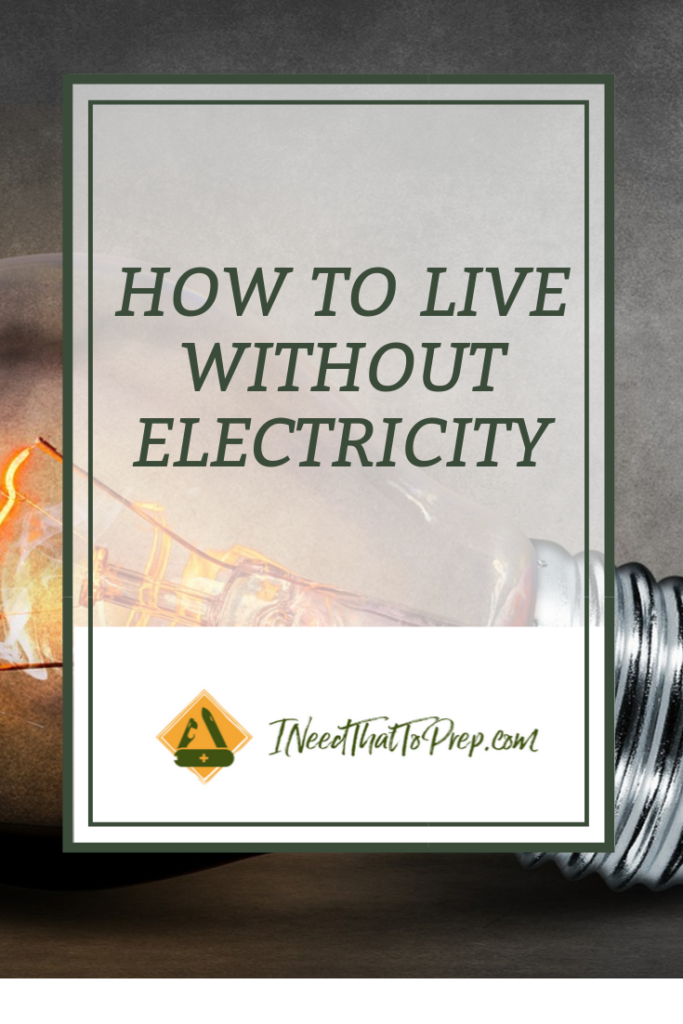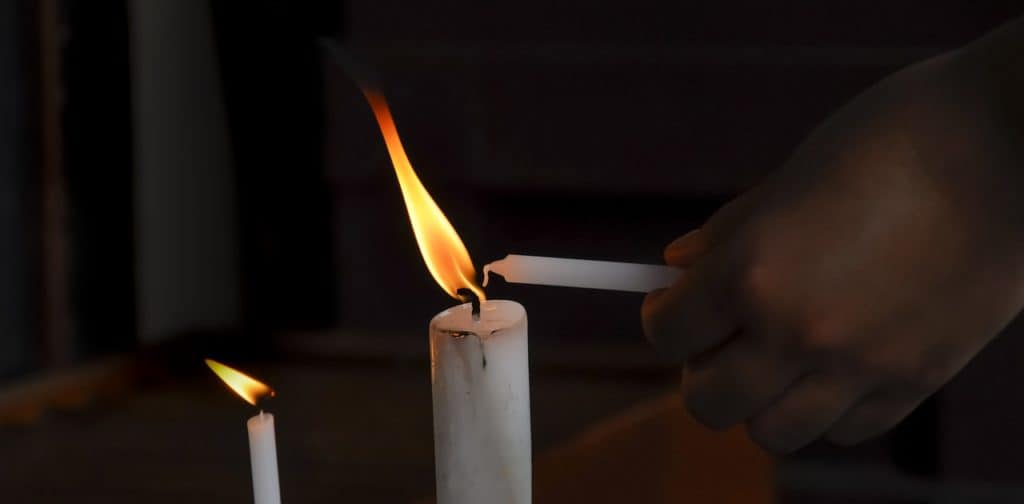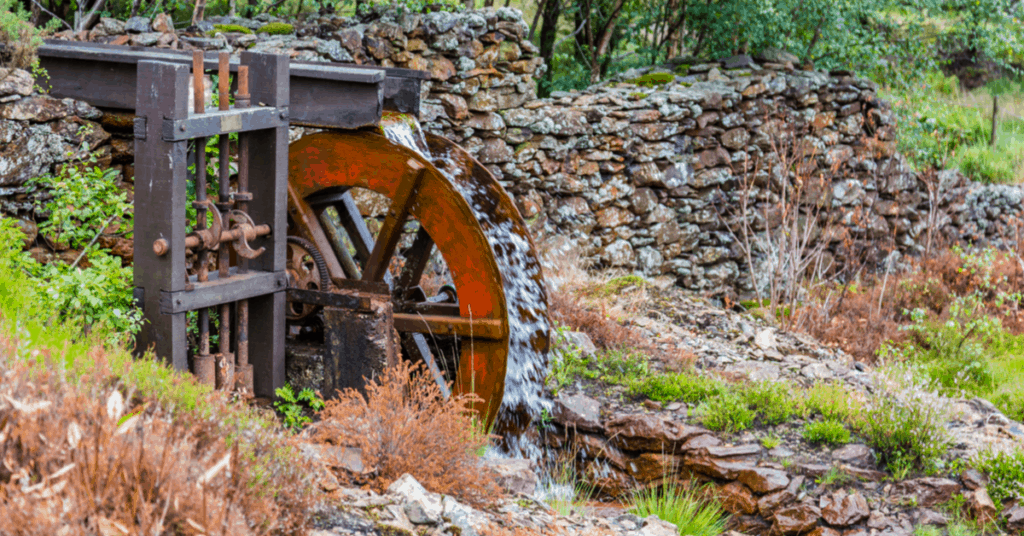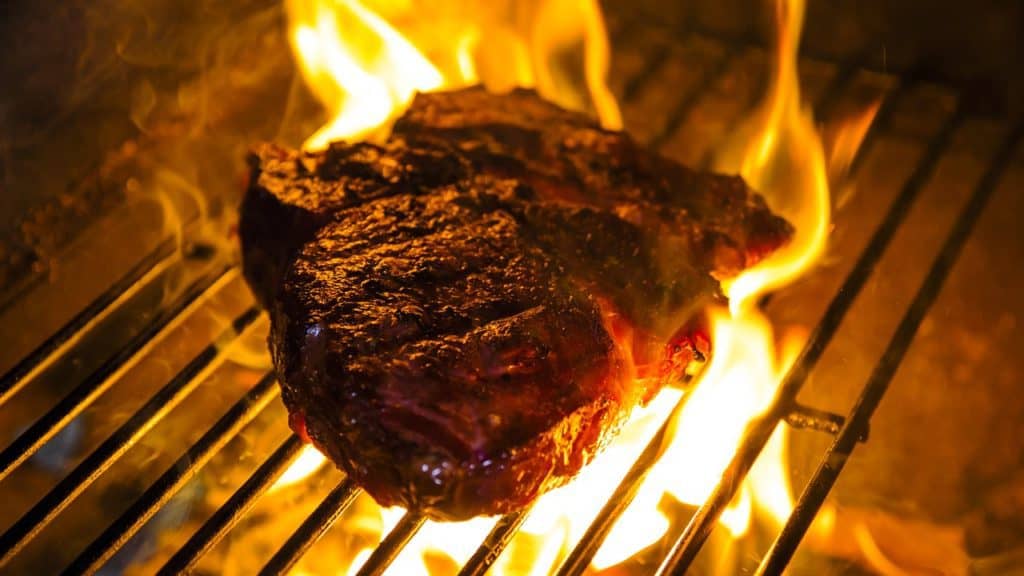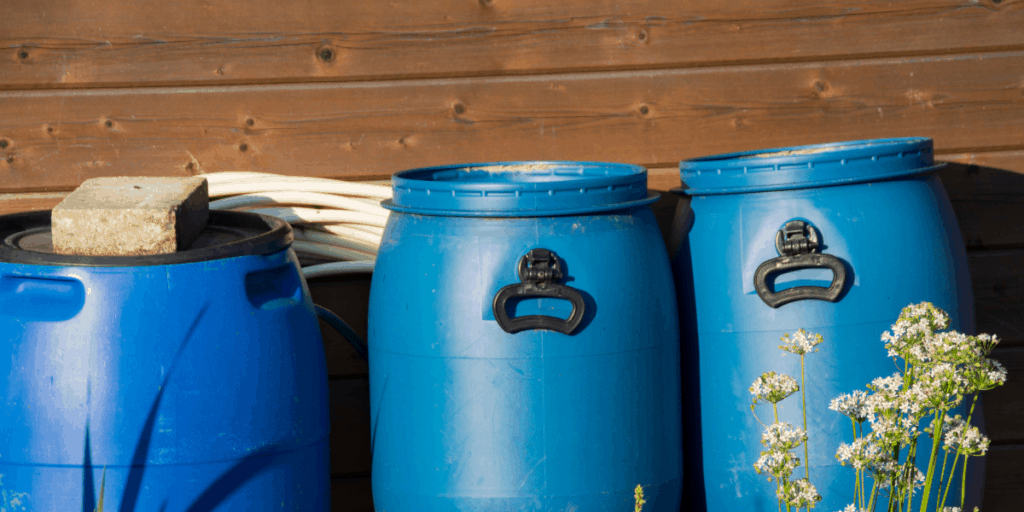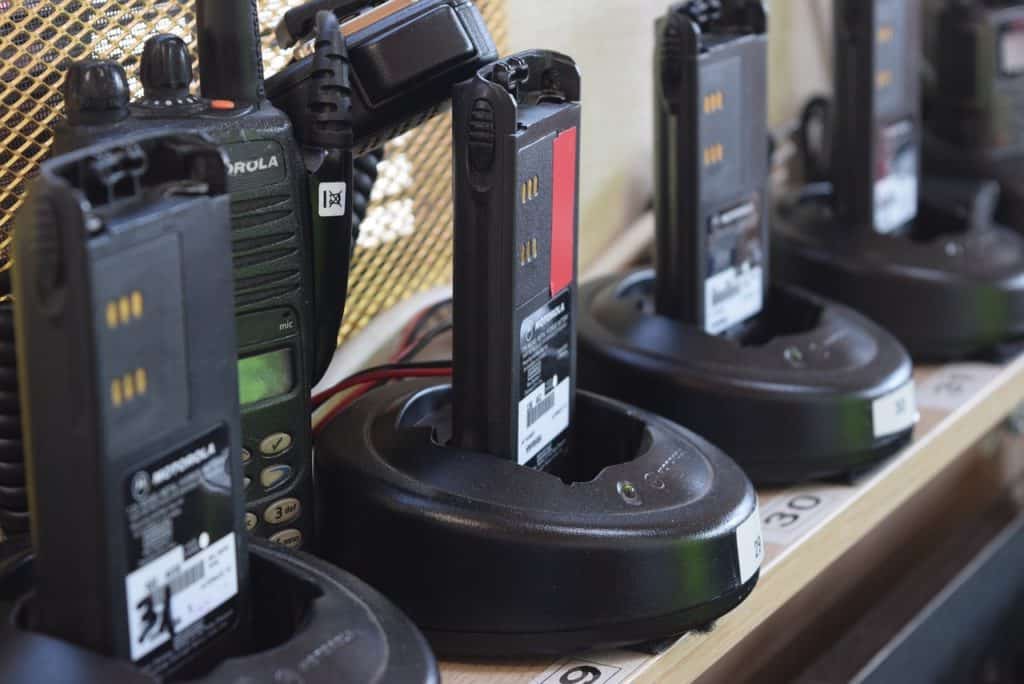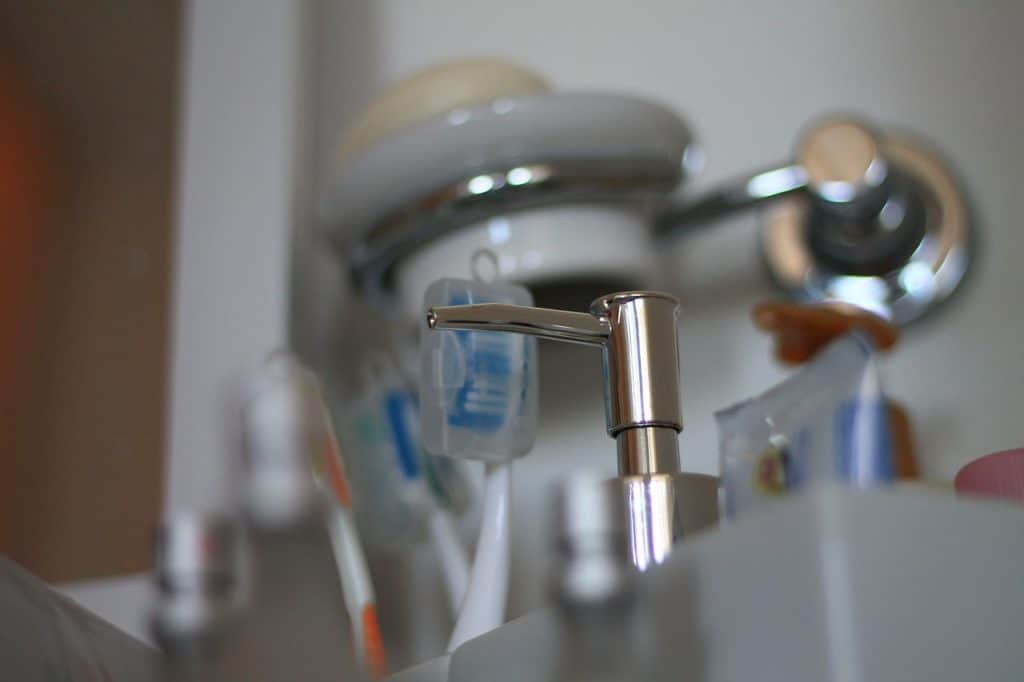Last Updated on September 12, 2020 by
Have you ever thought what it would be like without a refrigerator? We take such modern conveniences for granted that I don’t think anyone really truly thinks about the inconveniences of not having the basics like washing machines, television, internet, wall sockets to charge our smartphones and other gadgets.
Essentially this is close to homesteading and much of living without electricity overlaps. And as we start to analyze the situation of not having electricity, there will be two camps of society. First, you will have the country folk, who already live on a ranch and are possibly growing crops of their own, raising livestock, hunting , fishing, etc.
Essentially these are things that even I took for granted when I was growing up on a small cattle ranch, that I look back today and now appreciate the lifestyle that I was born into.
I am lucky to call myself “country-folk” and have always thought that “you can take the girl out of the country, but you can’t take the country out of the girl,” has always fit me personally, as I now am living in an urban environment, yet Yosemite is a 1.5 hour drive from my house. Because of my upbringing, I love the outdoors and have all of the country values and hobbies still deeply rooted in who I am.
The second camp of society, will be the ones who have never experienced country living and are only used to urban environments. If that is you, you may have never fished, never done any large game hunting, or bird hunting. You’ve never grown any crops, or maybe even a vegetable garden. You’ve never known what it’s like to have to get up in the middle of the night to help one of your cows calve, or feed the horses, or whatever it may be.
And that’s ok. That’s why we are all here. We are all here for the same reason – to educate ourselves on how to prepare for catastrophic events that could threaten ourselves and our family. Every one of us will be at different levels of our journey. The important thing is that we all get there before our society collapses, or the EMP strikes, or the next earthquake hits in California, or a nuclear fallout, or whatever it is you are preparing for.
So today, I wanted to bring to light the challenges you will face when the electricity goes out and how you can get prepared for a citywide power outage or greater. Unless you really sit down and make a list of the essential items that you will need, you won’t be fully prepared and you’ll have a tougher time getting through the gird-down scenario, especially if it’s longer than one or two weeks, no matter whether you live in the country or the city.
So let’s get started!
What To Expect If The Power Goes Out
Electricity Outages To Consider Inside The Home
- No refrigeration – Fresh food including meat, vegetables, and fruit will be the first thing to go. They will spoil quickly and will no longer be safe to eat. Unless you have prepared and have some dried fruit and meat, you won’t be eating any time soon.
- No showers – With no electricity, comes having no clean water. With no electricity, there will be no hot showers in the winter as well. I don’t think you will want to be taking a shower anyways in frigged temperatures anyways. You’ll need to learn another way to stay clean.
- No fresh water – Most of the municipal water systems are run automatically, meaning the use of electricity. Unless you live out in the country that has a manual pump (many have electric pumps so you will be in trouble), you are going to be completely out of water.
- No sanitation – Since there will be no water, you won’t be able to flush the toilets. Disposing of your waste will become an issue, so you need to know another way to do this. But it has to be done correctly, or else you can potentially get sick.
- No temperature controls – Depending on where you live in the country and what season it is, it can get extremely cold or extremely hot extremely fast. Without electricity, there will be no air conditioning and no heating.
- No television – Say goodbye to your beloved television shows. Without television to entertain us, you are going to have to re-learn to use your imagination and entertain yourself.
- No internet – If not having television is bad enough, what is going to happen when you are suddenly cut off from the rest of the world. Depending on how old you are, you might remember the days when cell phones and the internet didn’t exist. I was part of that much simpler generation. I remember having to wait until I got home from my college classes before I got to check my voice messages on that little voice recorder box. I’m still alive! I made it!
- No computers – This might not be as hard as not having any smartphones, but many people still rely heavily on working on their laptop computers for their careers, sending emails, etc.
- No smartphones – This is with no argument probably the worst thing to live without is our smartphones. Today’s society is connected and constantly “on” with the help of our smartphones. We send text, emails, participate in social media, get our latest news, and pretty much everything else that we do in our daily lives. Our entire life is on our smartphones. Without it, it would seem like life would end
- No stove cooking– If you have an electric stove, you won’t be able to cook. If you have a gas stove, you will be ok depending on how it’s designed. You’ll need to learn some new methods of cooking during the longer term outages.
- No washing machines – Dirty laundry is going to pile up quickly without water. Life is going to get a little stinky real fast. You will have to learn how to wash your clothes with soap and water in a bucket.
- No radio – you might get some radio stations for a little while after the power goes, plus your battery life will determine how much radio time you get, but if the power is out, radio stations won’t work. ( how long will a radio work if power is out?)
Electricity Outages Outside The Home
- No more grocery stores – If you think it’s hard for your own household to go without refrigeration, just think what will happen to grocery stores. All perishables like milk, eggs, fresh vegetables, yogurt, frozen foods, etc. will all spoil and go bad quickly.
- No gas – Even though there was a law passed in Florida and other states that requires most gas stations to have backup generators in case of power outages, there still might be problems with processing a credit card at the pump or even giving cash to the clerk if the cash drawer isn’t working. If this happens, it will be tough to drive anywhere. There are gas stations that train employees to lock all the doors until the power comes back on. This is short term scenario of course. Some say that they can’t process credit cards or take cash during a power outage, so even though they may have backup power generators, you still may be out of luck. My suggestion would be to go around to a few of your local gas stations and ask what would happen in a short term and long term power outage.
- ATMs won’t work – What will you do for money? You can’t get money out of the bank. Teller’s machines won’t work.
- No emergency services – Since all of the communication systems would be down, police and fire stations wouldn’t be able to communicate except for on car radios perhaps. This would put a big dent in the network grid, causing extreme difficulty for rescuers to find people.
- Traffic and street lights will go out – If you live in a small town, this might not be such a problem, but in a large town like San Francisco, Los Angeles, or New York City it could severely cripple the city in an instant. The world will instantly go black.
- People will become desperate and start looting – when times get tough, people will become desperate to feed their families and get them clean water. There will be many families in your neighborhood that aren’t as prepared as you (because after all, you are smart and that’s why you are trying to prepare yourself ahead of time and consider yourself a prepper)
- Banks will shut down – there will be no lights and no way for banks to operate. Since you can’t get cash from an ATM, there will eseentially be no way to get money.
Essentially the community would cease to exist as you know it. It would be chaos at first, then the ones who make it through the first few months (because many people that rely on medical equipment or prescription drugs would perish quickly) would settle into a new life of living without electricity, or truly living “off the grid.”
I couldn’t help but post one of my all-time country songs growing up as a kid. I think this song works well in the case of a grid-down scenarios. “A Country Boy Can Survive,” by Hank Williams Jr. Some of the lyrics say…….The preacher man says it’s the end of time…… I live back in the woods you see… I got a shotgun, a rifle, and a 4-wheel drive…… I can plow a field all day long…. I can catch catfish from dusk til dawn… not too many things these old boys can’t do… (tons of lines in this song!)
Those are just some of my favorite lyrics (in no particular order) but reminds me some day that when the s*!t really does hit the fan, that the country folks will be well versed as well as the people who live in the city who are prepared. With that said, that’s exactly why we are all here. To continue to learn to be self-sufficient in every aspect of our lives so that we don’t have to rely on anyone to take care of us in case of an emergency scenario.
How To Live Without Electricity
So now that I’ve jogged your brain a little bit and got you a little scared at what your life could become and the dangers you could face without electricity, let’s look at how we could live like our ancestors comfortably without electricity.
Would we have a little more manual labor than before? Yes. Would we have to sacrifice our internet, smartphones, and computers? Yes. Would we have to come up with new ways to light our homes and keep us warm and entertained? Yes. Don’t get me wrong, I wouldn’t look forward to that either and many of us might perish because it’s too much to handle. But if we could use what we know now from our ancestors and how they lived and then apply a little ingenuity, then I think we could learn to adapt and live a fairly comfortable life.
Heating and Lighting
Solar Power
Solar power has increasingly become a popular solution for high energy bills, especially in California where I live. It is a fantastic renewable energy option and can run your entire house if the electricity goes out if the system is set up properly. It gets a little complicated at this point, but it is possible for you to go “off grid” with your home and use a battery that has extra storage to hold the extra electricity that your panels create so you can use it on days when the sun doesn’t shine so bright.
Solar technology has gotten better and better as time has gone on and it should continue to allow us to do more with renewable energy sources like solar. With solar, you can either have roof-top panels installed or you can have standalone panels that are mounted on a pole or you can have ground panels. If you are thinking of going off grid at some point, you should make sure you understand the basic components of the solar system, understand how inverters work, and the various storage battery types, etc.
As I was researching more on the subject of going off grid with solar, I came across an interesting thread that I wanted share. The question came up of “Why can’t solar panels be used off grid and without a battery?” Apparently there are two camps to this subject and I will continue to monitor this discussion. Apparently no one really knows the exact truth. It can take many years to recoup your investment into solar panels, and that’s why some homeowners are a little gun shy about solar panels.
If you don’t have the financing available to use solar, you can try the do-it-yourself solar options. I would recommend though that you get a professional to install your panels if at all possible. Just one little mistake could cost you thousands of dollars.
Hydropower
Hydropower can be another source of renewable energy if the grid goes down. In 2018, hydroelectricity accounted for about 7% of total U.S. utility-scale electricity generation and 41% of total utility-scale electricity generation from renewable energy source. At the same time, this may not be as feasible for you if you are in an urban environment, but if you live in the country and your property has a creek that runs through it or possibly a lake, this can be an option. The correct term for this system of off the grid living is run-of-the-river micro hydro sites. This type of hydro site will be the one that you will be focusing on for a survival type situation. As a matter of fact, hydropower can power a home 24/7, whereas solar power cannot.
There are two ways you can get electricity from your stream or lake. You can either have a turbine in the natural path of the stream, or you can have a dam that flows the water into a turbine. One of the most common is the classic water wheel as seen below in the photo. You have to be careful with damming and turbines because most places have local restrictions to this because water is technically for public use, even if the steam runs through your property, farmers may need it downstream from you. You will need to check Federal Energy Regulatory Commission (FERC) for laws in your location.
The best thing to do is to first figure out the amount of electricity you are using every month by simply looking at the kilowatt usage on your energy bill every month. Then you will know approximately how many kilowatts you will need. Once you know how much energy you need, you need to figure out how to create the power to satisfy your energy needs. On Alternative Energy Tutorials’s website they state that, the maximum amount of electrical power that can be obtained from a river or stream of flowing water depends upon the amount of power within the flowing water at that particular point.
And of course, once you’ve figured out this information you are going to know how to build one of these homemade hydro systems for your home. I’ll leave that research up to you. I found a great video series that you can start doing your research on. Enjoy!
Wind Turbine
Although it might be difficult for urban preppers to utilize wind turbines as an alternative energy source, I need to mention it because a wind turbine can be built with a little bit of research and help. There are several factors when considering putting in a wind turbine such as city ordinances, how windy does it get and during what parts of the day, how much square footage your back yard is (you should have at least 1 acre of land to set up a good wind turbine), and so on.
The below video is probably the most popular “how to” video about wind turbines. With over six million views, it will show you everything on how to set it up and what materials you need and how much.
In order to begin your journey into finding out if a wind turbine is right for you, you are going to have to do an extensive amount of research. I would recommend that you start on the Offices Of Energy Efficiency & Renewal Energy website’s FAQ page.
Backup Power Generators
Using a backup power generator can help power your entire home depending, of course, how much energy you use. If you’ve noticed, every alternative electricity source depends on how much power your current usage is. Checking your usage annually may be a good idea so just in case the power goes out, you’ll have a good sense for what you need.
Make sure you have the proper information and knowledge you need to make an educated decision on what system to buy. I found a great resource that goes into detail about the various components and what you need to look for when buying a solar powered generator, if that’s what system you end up going with, so feel free to click over to the website and check it out for more in depth information.
Alternative Light Sources
Naturally when the sun goes down at night, you are going to need alternative light sources and ways to power them. Just a quick notes, don’t forget to stock up on batteries and matches, and even small butane lighters. These will be necessary for some of the below light sources.
- Headlamps – Headlamps are great when you are doing a variety of different hands that requires both hands. Headlamps allow you to be hands-free and work excellent for when you are cooking at night or early in the morning.
- LED flashlights – You can easily stock up on some good LED flashlights. LED flashlights typically last longer and are brighter than normal incadescent flashlights. You will hear and read a lot of lumens as well. It simply is a measurement of light emitted from a particular source.
- Candles – Candles are fantastic because they simply require a match to light and you don’t have to worry about batteries, or kerosene, for example. A fantastic option are the paraffin candles that burn 115 hours each!
- Camping Lanterns – If you’ve ever done any camping, you know what these look like. You can buy either battery powered lanterns or kerosene camping lanterns.
- Solar powered lawn lanterns -Yes. I know it sounds funny, but those little lawn stakes that have a solar powered light on the end, can be brought indoors at night and used as light. I got this idea from reading a survival handbook of quick and simple fixes. Hey, any light is better than no light right? It won’t be very bright, but at least you can get around from place to place with them.
Food
Growing Your Own Vegetables
I remember growing up as a kid hating picking blackberries and raspberries from the bushes. My brother and I had to wear gloves or else we would get little hair-sized thorns in our fingers. We also had peach trees, pomegranate trees, and grapes on the ranch. Still, to this day, my mom makes pomegranate jelly and gives it to all of her friends (and my brother and I) as Christmas presents. We also used to pull carrots out of the ground and beets and use them for our salads.
If you’ve never had this experience, it’s truly one of feeling satisfied that you can fend for yourself if something should go wrong. If we look at the grid-down situation where there is no electricity, you will have had to store up enough water to be able to water your vegetable garden. Collecting rain water is a great idea to use for extra water for your garden.
Emergency Food Kits
Emergency food kits are very popular among preppers and there are several options and time frames to choose from. They can be a great option and only required heated water to make a great tasty meal. Just note that for long term purposes these dehydrated foods can be tough on your digestive system, but if it is the difference between life and death, then of course, by all means, take the dehydrated foods. The best scenario is to have a mixture of fresh vegetables, meat, and then dehydrated foods if at all possible.
Raising Small Livestock
I could start another blog regarding this subject, but of course I won’t do that. Growing up raising sheep, hogs, cattle, and chickens taught me about responsibility and hard work at an early age. Being in 4-H also taught me that farm animals clearly were not pets, and they were raised for meat. Learning animal husbandry takes skill and practice and knowledge, but you can certainly learn it over time and with enough experience.
I laugh when I see the above picture on our family ranch, but I also feel lucky to have been raised in that lifestyle. If you live in urban areas, it’s still possible to raise small animals such as chickens and rabbits as long as your city ordinance allows it. Chickens provide eggs and meat and are easy to keep up. The same goes with rabbits (although they can’t lay eggs unless they are the Easter bunny! LOL!) Both can be an excellent source of meat and are fairly easy to slaughter even for beginners.
Cooking Food
Open Fire
Cooking on an open fire is something you might have done when you went camping in the mountains or on the beach. As you might have experienced, the temperature can be a little hard to regulate, so you learn quickly how to move things around, and never place anything over the direct flame.
There are so many mistakes that you can make it you’ve never cooked over an open fire so make sure you do a little research as part of your preparation skills. Keep notes somewhere in a notebook so you remember just in case you need to refer back to it. Also, trial and error works too. Wink. Wink.
Wood-Burning Stoves
Wood-burning stoves have this slight romance about them. You’ve seen them in old westerns or shows like Little House On The Prairie. They are visually appealing and can really warm up a room on a chilly night. Wood-burning stoves are just what they sound like. They use wood from the bottom chamber to heat up the upper chamber so that you can cook on them. They are typically made out of cast iron or steel and make for a wonderful way to cook meals when there is no electricity.
Campfire Stoves
You can’t go camping without a campfire stove. Make sure you have extra propane stocked up for your camping stoves. This would be a great alternative when electricity goes out. Camp stoves can last as long as you have propane for them.
Gas Stoves
Gas stoves can work great during a power outage depending how the stove is made. All you need is a few matches and you can cook like normal.
Make Sure You Have Adequate Water Storage
Water storage is going to be the number one most important aspect of survival when electricity goes out. Because all of your clean water is provided by the city, as soon as the city shuts down, so does the clean water. You will have to have another water supply.
Learning about emergency water storage and how to store water properly should be one of the first things you study. Always remember you can live as much as 3 weeks without food, but only 3 days without water.
Communication
Have you ever thought it would be like to live without an smartphone for a day, let alone a week or two. If you are forced to live without electricity, you will need an alternative method of communication. One of the best sources of emergency communication comes from the hand crank weather radios. Make sure to read our review we did on the best emergency radio on the market. It will give you some fantastic tips on buying the best one.
Here’s a funny thing to think about. During a long-term blackout, if you have a land line telephone still installed, it may actually work to help you to communicate. The problem with that is that you can only call other people that have a ground line as well, so it won’t do you much good unless you already have planned with friends and family in making sure they have backup emergency ground lines.
Amateur HAM radios can work extremely well in this scenarios as well. The problem is that you will have to know how to use one. Also keep in mind that you will have to plan your communication with your family ahead of time because if you have emergency communication and other members that live somewhere else do not, what good will it do?
Personal Hygiene And Sanitation
Personal hygiene is going to be one of the hardest things to adapt to. Without clean water, it makes it really hard to do a lot of things we take for granted like brushing our teeth, washing our face, taking showers, etc. You will be taking a lot of sponge baths, you can count on that. But with that said, even though you won’t have any water, you still can make things work.
Oral Care
When brushing your teeth, you can either use water from a bottle, since you know it’s safe, or you can allocated some water from your stored water barrels (hopefully you have planned ahead). Toothbrushes are cheap, so you can stock up on those now as well as floss and toothpaste. When you run out of toothpaste you can make some type of home remedy using salt and baking soda.
The goal here is to protect your mouth from abscesses and other nasty things like tooth decay, cavities, or infections of any kind. There will be no dentist around, so a small tooth ache could turn into a large one, which could prevent you from eating due to pain, and much worse, could even lead to death.
Bathing
Taking a shower will probably become a thing of the past. More than likely society would go back to taking baths and filling up the bath just enough to get the “important” parts. Sponge baths will work well too if you are short on water. You can use camp showers that hang from a tree. Essentially its just a water bob suspended in the air. The water won’t be that warm, but it can be heated slightly by the sun if you put the water in a bucket ahead of time. Make sure to stock up on shampoo and soap to make it through the power outage as well. You can use old t-shirts again as wash clothes during the bathing process.
DIY Toilet
I know the next topic is a not-so-pleasant topic to talk about, but it’s a real one that you can’t over look. Since there will be no running water because there is no electricity, you won’t be able to flush the toilet (unless you use your stored water to flush the toilet). So you are going to have to have an alternative means of getting rid of waste.
There are great emergency toilet buckets that you can get to store in your garage for safe keeping until someday you may need it. Essentially it is a 5-gallon bucket with a toilet lid that fits over the top. The kit comes with plastic bags. You’ll need to keep a bucket full of sand with a little scoop in it, then when you’re done you just put some sand over it and maybe some baking soda then when it gets full you’ll dump it somewhere and bury the contents.
You might be wondering about what to use for toilet paper right? You can stock up on a few months of supplies, but it gets really bulky and takes up a lot of room. I would suggest taking old shirts and cutting them up into squares. Then you can wash them in another bucket with some bleach and soapy water and reuse them later on.
Laundry
Back in the pioneer days, washing clothes was a tough job. They would use several tubs of water, wash boards, soaps that were made from hand, and other necessities. Apparently they spent an entire day, usually Monday, doing laundry. They had to make sure they had the proper liquid soap that mixed well with the water.
You could buy yourself a washboard and a bucket to do laundry, but it many not be as feasible to lug a larger bucket around for washing clothes. Any extra stuff may slow you down. An easier way to do it would be to use a light-weight 5-gallon bucket, fill it with soapy water, and soak your clothes in it. For tougher spots to get out, you can throw the clothes against a big rock and rub the dirt out. You can then hang them out to dry somewhere with a clothesline and clothespins.
Entertainment
I would guess that many people would say that not having a television would almost be as bad as not having your smartphone at your fingertips. Having another source of entertainment if the electricity goes out is critical for keeping you and your family sane. You might just die of boredom without any electronics….well, not literally anyways.
You can buy some books, a deck of cool urban survival playing cards, dice, board games, or whatever you would like that doesn’t require electricity. It doesn’t take much and it will help pass the time.
Final Thoughts
I hope this has given you a better idea of what to expect if you ever find yourself without power. It can be a little scary to think about, but with some planning and practice, you could survive if you were forced to.
Let us know if there’s other suggestions or anything we are missing below. We would love to hear from you!
